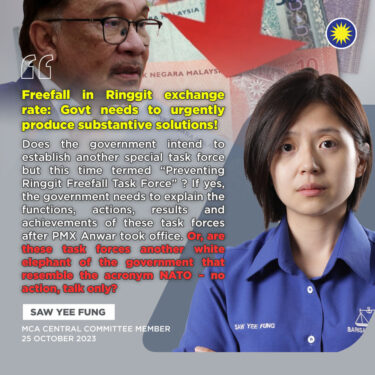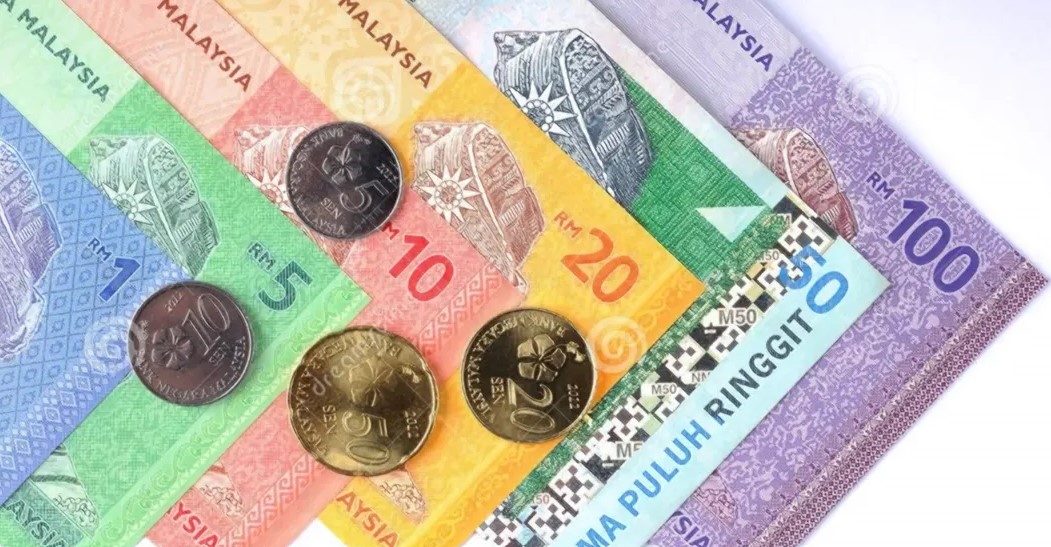WHILE the ringgit continues to depreciate and inflation intensifies, the rakyat are the first to bear the brunt. However, the government headed by Prime Minister Datuk Seri Anwar Ibrahim still has yet to propose any substantive fiscal policies to handle this dilemma.
Moreover, resorting to excuses to shirk responsibility rather than formulating solutions is worrisome and does not help the rakyat at all.
The ringgit continues to slump again and again against the US dollar, hitting its lowest point since the 1997/1998 Asian financial crisis, falling to nearly RM4.80 against the greenback and close to RM3.50 against the Singapore dollar.
Despite the turbulence and turmoil in the global stage such as the Palestine-Israel conflict, and the risk of long-term interest rates hikes by the Federal Reserve which impacts the ringgit, the government cannot keep making excuses and rationalise the decline of our national currency without proposing any substantive fiscal measures in response.
The continued fall of the ringgit is nothing new. In addition to external challenges, the government ought to evaluate if the ringgit’s persistent plunge is related to structural problems within the national economy rather than just stemming from international developments.

Among others, Malaysia growth momentum has shrunk since the 1990s, from more than 7% to just 3% to 4%. According to the International Institute for Management Development (IMD) World Competitiveness Ranking (WCR), Malaysia ranked 10th in 2010.
Dropping to the 27th spot last year; Malaysia also nosedived to the 30th place in the rankings of business efficiency and business legislation.
The Bank Negara Malaysia (BNM) Governor has informed that there would be market measures to respond to the ringgit’s depreciation through monetary policies. However, the public has yet to see any responsive policies proposed by the Malaysia Madani government to alleviate the current economic pressures which the people are shouldering.
Despite being bandied as the “best Finance Minister” (Finance Minister of the Year 1996 by Asiamoney), PMX Anwar has yet to adopt any actual policies. Even worse, consumers will bear the brunt of the plummeting ringgit in view of the corresponding flight in import costs which bears inflationary effects.
Unfortunately, not only did the government fail to adopt fiscal policies in Budget 2024 to deal with inflation, it also raised the sales and service tax to 8%. Coupled with the elimination of policies such as the price ceiling for chickens and eggs, domestic inflation is expected to be further aggravated.
Although the domestic inflation rate in the third quarter was 1.9%, the inflation rate in restaurants, hotels, food and non-alcoholic beverages was the highest – more than double the overall inflation rate.
As daily essentials are consumed by the rakyat the most, the related price hikes will definitely magnify the economic burden and cost of living of the B40 and M40 households.
What policies will the government implement to tackle these financial adversities confronting the lower to middle income groups? Does the government intend to establish another special task force but this time termed “Preventing Ringgit Freefall Task Force”?
If yes, the government needs to explain the functions, actions, results and achievements of these task forces after PMX Anwar took office. Or are these task forces another white elephant of the government that resemble the acronym NATO – no action, talk only? – Oct 26, 2023
Saw Yee Fung who holds a Master of Economics from Universiti Malaya is MCA’s central committee member.
The views expressed are solely of the author and do not necessarily reflect those of Focus Malaysia.









